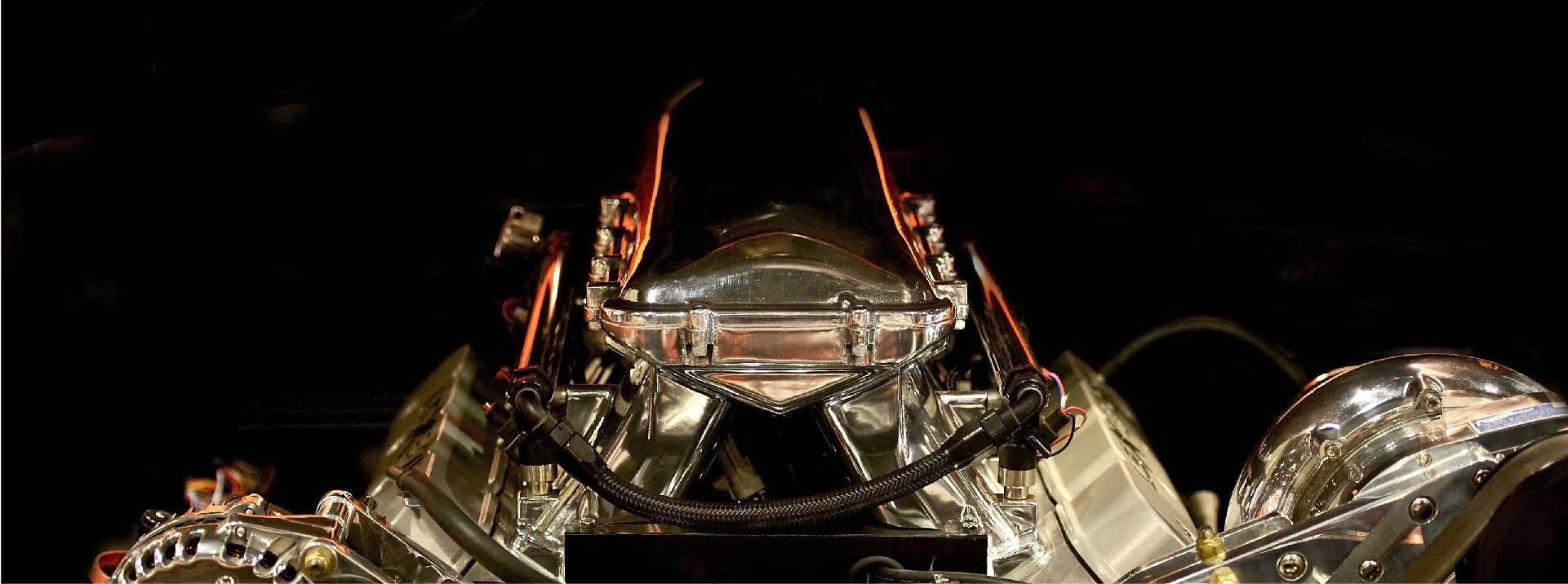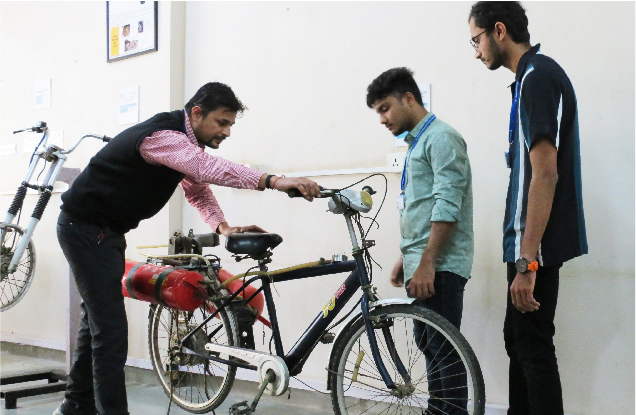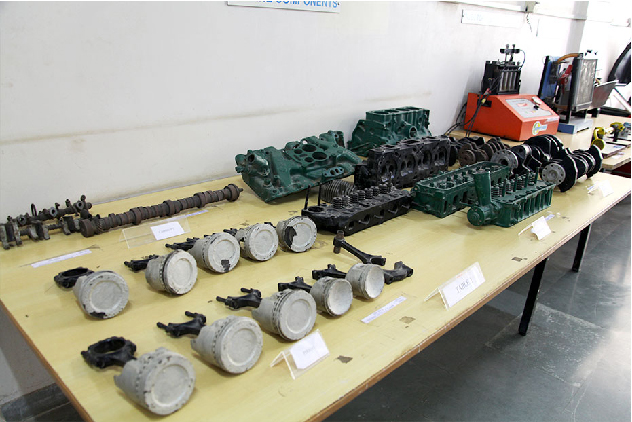Announcement
Get Ready for INDUS CUP 2K26! | Dates: 5–10 January 2026 | Stand a Chance to Win Cash Prizes up to ₹10,00,000!...Read more Get Ready for INDUS CUP 2K26! | Dates: 5–10 January 2026 | Stand a Chance to Win Cash Prizes up to ₹10,00,000!
We are excited to announce the Indus Hackathon 2025, an exhilarating one-day event organized by the CSE Department of Indus University....Read more We are excited to announce the Indus Hackathon 2025, an exhilarating one-day event organized by the CSE Department of Indus University.
26th ISTE Faculty Annual State Convention will be held at Indus University on April 27, 2023....Read more 26th ISTE Faculty Annual State Convention will be held at Indus University on April 27, 2023.
Get Ready for INDUS CUP 2K26! | Dates: 5–10 January 2026 | Stand a Chance to Win Cash Prizes up to ₹10,00,000!...Read more Get Ready for INDUS CUP 2K26! | Dates: 5–10 January 2026 | Stand a Chance to Win Cash Prizes up to ₹10,00,000!
We are excited to announce the Indus Hackathon 2025, an exhilarating one-day event organized by the CSE Department of Indus University....Read more We are excited to announce the Indus Hackathon 2025, an exhilarating one-day event organized by the CSE Department of Indus University.
26th ISTE Faculty Annual State Convention will be held at Indus University on April 27, 2023....Read more 26th ISTE Faculty Annual State Convention will be held at Indus University on April 27, 2023.

The ability of the Automobile Industry to ease normal mobility and the development of electric vehicle production has received tremendous approbation from the people. Automobile engineering is currently the most well-liked profession worldwide due to the excessive need for dependable, fashionable, and amenity-rich Automobiles.
The Department of Automobile Engineering at Indus University, founded in 2006, is the Best University among various other Universities that offers a bachelor's degree in Automobile Engineering (B.Tech). The Department has qualified, experienced professionals with advanced degrees and specialists in multiple subjects.
A four-year curriculum, B.Tech in Automobile Engineering, is created to give students a variety of skill sets.
There are three categories of skills
Students are trained to become skilled engineers throughout the entire curriculum.
The Indus University provides courses that prepare you to work in the industry in research and development as the finest automobile engineers. The programme is divided into several segments, each covering a distinct subject.
B.Tech in Automobile Engineering, specializing in the automotive industry, includes a curriculum in automobile design, manufacture, testing and maintenance. With the tremendous growth of the automobile industry, the B.Tech Automobile courses have exploded. The characteristics of various technological elements, such as electronics, software, mechanics, electricity, etc., used in the manufacture and design of cars in this industry will be covered in this course.
Therefore, various topics such as Engine systems, Combustion Technology, Fluid mechanics, Electronics and control systems, Aerodynamics, etc., are an annual program. The main strength of the Indus Institute of Technology & Engineering of B.Tech in Automobile is that this field has well-equipped laboratories where students learn to conduct natural experiments using machines, equipment, and software to gain in-depth knowledge of the automotive industry and technology. Some of these labs are the Mechanical Engineering Lab, WT Lab, CAD/CAM Lab, Chassis Design Lab, FM Lab, IC Motor Lab, etc.
The Automobile Engineering Department attempts to instruct students in designing, developing, producing, and testing Automobile components from their conceptual to finished stages. The Department's curriculum also strongly emphasizes electric and hybrid Automobiles. Students learn about integrating fundamental and vital mechanical, electrical, computer, electronics, and safety engineering topics during their four years in engineering.
The Automobile Engineering diploma provides targeted education designed to meet the needs of the growing sector. Its goal is to prepare students with the expertise for designing, building, testing and maintaining automobiles. As the automotive industry continues to expand there is an increasing need for professionals in this area. This program focuses on the complexities of car manufacturing and design encompassing aspects from electronics to mechanics. It serves as a stepping stone towards a fulfilling career, in the evolving field of automobile engineering.
Diploma in Automobile Engineering provides Quality education designed to meet the needs of this growing sector. Its goal is to prepare students with the desire for designing, building, testing and maintaining automobiles. As the automotive industry continues to expand there is an increasing need for working professionals in this area.
This program focuses on the complexities of car manufacturing and design encompassing aspects from electronics to mechanics. It serves as a stepping stone towards a fulfilling career, in the evolving field of automobile engineering.
Fifty per cent of the authorised enrollment for each course will be admitted by the Admission Committee for Professional Courses (ACPC) based on merit. Following the result, the student needs to register with ACPC.
According to ACPC criteria, the institute handles admission for the Management Quota, which makes up 50% of each course's authorised enrollment.
Minimum Aggregate 45% in Physics, Chemistry & Mathematics, Theory exam in H.S.C. of any boards.
Course Duration
4 Years (8 Semesters)
Engineering Proficiency: To answer complicated engineering problems, use your knowledge of mathematics, science, and engineering fundamentals, in a specific engineering sector.
Analysis: Using the fundamental concepts of mathematics, the natural sciences, and engineering, formulate, identify, assess research writings, and analyse complex engineering challenges to obtain validated conclusions.
Design and Development Solutions: Create solutions for challenging engineering problems and system components or methodologies that address the defined needs while correctly considering safety, cultural, and environmental considerations.
Sustainability and Environment: Demonstrate an awareness of the impact of professional engineering solutions in societal and environmental contexts and the importance of long-lasting development.
Individual and Teamwork: Work well individually and as a team player or leader in various teams and multidisciplinary environments.
Communication: Communicate extensively with the technical community and society about complex engineering tasks, such as comprehending and capturing design documents and reports to give persuasive presentations and get precise directions.
Project Management: Apply engineering and management ideas to one's assignment as a team member and leader to work on projects in diverse backgrounds and demonstrate in-depth knowledge of these concepts.
There are cutting-edge laboratories available for use by the Department of Automobile Engineering. Recent developments in environmental protection, research into alternative fuels, hybrid technology, and fundamental modules on I.C. engine performance, repair, and comprehension are all included.
The Department of Automobile Engineering has several top-notch, well-maintained labs, including:
Automobile Engines Laboratory: The Automobile Engines laboratory is equipped with many test rigs (diesel/petrol) with a rope brake dynamometer, Hydraulic and Electrical Dynamometers, an exhaust gas analyser, , a cut part of a complete four-wheeler, and many other modules to carry out and research the fundamentals of vehicle engineering.
Automobile System Laboratory: The knowledge necessary to analyse, design, and optimise different systems for future must be developed by understanding automobile engineering systems. Every mechanical part of the car is well-equipped in the laboratory for automobile systems.
Vehicle Maintenance & Garage Practice Workshop: The lab is equipped with tools for servicing a car and a car to carry out various procedures and industry-oriented repairing and diagnosing arrangements, including an injector cleaning machine, a wheel balancing, and a wheel alignment Machines.
Automobile Component Design Laboratory: While designing the same part, the Automobile Component Design Laboratory exhibits the various automobiles in total transparency. The primary focus of the automobile engineering courses continues to be the design process through the visual experience; students can develop clarity and aptitude.
Two-wheeler Three-wheeler's Laboratory: We teach our semester students about the most recent advances in automotive engineering technology. The laboratory includes cut-outs of several systems found in two- and three-wheeled electric scooters.
Automobile Electrical & Electronics Laboratory: Understanding the fundamentals of electrical and electronics systems found in automobiles is the main goal of this Laboratory. Numerous sensors, electronic control units, motors, alternators, and various electrical and electronic systems are all included in the present model of an automobile.
Automobile Air Conditioning & Refrigeration: In conclusion, the Automobile Engineering Department provides the optional course and never stops working to transform its bright students into qualified engineers.
There are many career choices in India for engineers who specialize in automobiles, including service centres for automakers and dealers, manufacturing facilities, control departments for vehicles, insurance company experts, transportation firms, and state-run transportation corporations, among others. Since the automobile engineer is educated to be an expert in CAD/CAM, and ERP, one can quickly enter design firms as an automobile designer. One can also flourish their career as an Entrepreneur.
The automotive business is constantly changing as new technology is introduced. Thus anyone studying Automobile Engineering must stay current with today's standards.
Indus University has a separate team for the Training & Placement Department (T & P Dept.) – that recreates the key role of connecting two important ends: school and Industry. It shows a bridge between schools and constituent institutions of the University and Industry.
Training & Placement Department (T & P Dept.) is the epicentre for career guidance to students of all programmes and streams pursuing their studies at the University. It offers overall career solutions to the students by guiding them to decide and pursue their dream careers.
Top Companies Offering Career Opportunities to the Automotive engineers:
Fifty per cent of the authorised enrollment for each course will be admitted by the Admission Committee for Professional Courses (ACPC) based on merit. Following the result, the student needs to register with ACPC.
According to ACPC criteria, the institute handles admission for the Management Quota, which makes up 50% of each course's authorised enrollment.
Minimum Aggregate 45% in Physics, Chemistry & Mathematics, Theory exam in H.S.C. of any boards.
Course Duration
4 Years (8 Semesters)
Engineering Proficiency: To answer complicated engineering problems, use your knowledge of mathematics, science, and engineering fundamentals, in a specific engineering sector.
Analysis: Using the fundamental concepts of mathematics, the natural sciences, and engineering, formulate, identify, assess research writings, and analyse complex engineering challenges to obtain validated conclusions.
Design and Development Solutions: Create solutions for challenging engineering problems and system components or methodologies that address the defined needs while correctly considering safety, cultural, and environmental considerations.
Sustainability and Environment: Demonstrate an awareness of the impact of professional engineering solutions in societal and environmental contexts and the importance of long-lasting development.
Individual and Teamwork: Work well individually and as a team player or leader in various teams and multidisciplinary environments.
Communication: Communicate extensively with the technical community and society about complex engineering tasks, such as comprehending and capturing design documents and reports to give persuasive presentations and get precise directions.
Project Management: Apply engineering and management ideas to one's assignment as a team member and leader to work on projects in diverse backgrounds and demonstrate in-depth knowledge of these concepts.
There are cutting-edge laboratories available for use by the Department of Automobile Engineering. Recent developments in environmental protection, research into alternative fuels, hybrid technology, and fundamental modules on I.C. engine performance, repair, and comprehension are all included.
The Department of Automobile Engineering has several top-notch, well-maintained labs, including:
Automobile Engines Laboratory: The Automobile Engines laboratory is equipped with many test rigs (diesel/petrol) with a rope brake dynamometer, Hydraulic and Electrical Dynamometers, an exhaust gas analyser, , a cut part of a complete four-wheeler, and many other modules to carry out and research the fundamentals of vehicle engineering.
Automobile System Laboratory: The knowledge necessary to analyse, design, and optimise different systems for future must be developed by understanding automobile engineering systems. Every mechanical part of the car is well-equipped in the laboratory for automobile systems.
Vehicle Maintenance & Garage Practice Workshop: The lab is equipped with tools for servicing a car and a car to carry out various procedures and industry-oriented repairing and diagnosing arrangements, including an injector cleaning machine, a wheel balancing, and a wheel alignment Machines.
Automobile Component Design Laboratory: While designing the same part, the Automobile Component Design Laboratory exhibits the various automobiles in total transparency. The primary focus of the automobile engineering courses continues to be the design process through the visual experience; students can develop clarity and aptitude.
Two-wheeler Three-wheeler's Laboratory: We teach our semester students about the most recent advances in automotive engineering technology. The laboratory includes cut-outs of several systems found in two- and three-wheeled electric scooters.
Automobile Electrical & Electronics Laboratory: Understanding the fundamentals of electrical and electronics systems found in automobiles is the main goal of this Laboratory. Numerous sensors, electronic control units, motors, alternators, and various electrical and electronic systems are all included in the present model of an automobile.
Automobile Air Conditioning & Refrigeration: In conclusion, the Automobile Engineering Department provides the optional course and never stops working to transform its bright students into qualified engineers.
There are many career choices in India for engineers who specialize in automobiles, including service centres for automakers and dealers, manufacturing facilities, control departments for vehicles, insurance company experts, transportation firms, and state-run transportation corporations, among others. Since the automobile engineer is educated to be an expert in CAD/CAM, and ERP, one can quickly enter design firms as an automobile designer. One can also flourish their career as an Entrepreneur.
The automotive business is constantly changing as new technology is introduced. Thus anyone studying automobile engineering must stay current with today's standards.
Indus University has a separate team for the Training & Placement Department (T & P Dept.) – that recreates the key role of connecting two important ends: school and Industry. It shows a bridge between schools and constituent institutions of the University and Industry.
Training & Placement Department (T & P Dept.) is the epicentre for career guidance to students of all programmes and streams pursuing their studies at the University. It offers overall career solutions to the students by guiding them to decide and pursue their dream careers.
Top Companies Offering Career Opportunities to the Automotive engineers:

An imaginative educational plan of this program will empower understudies..

An imaginative educational plan of this program will empower understudies..